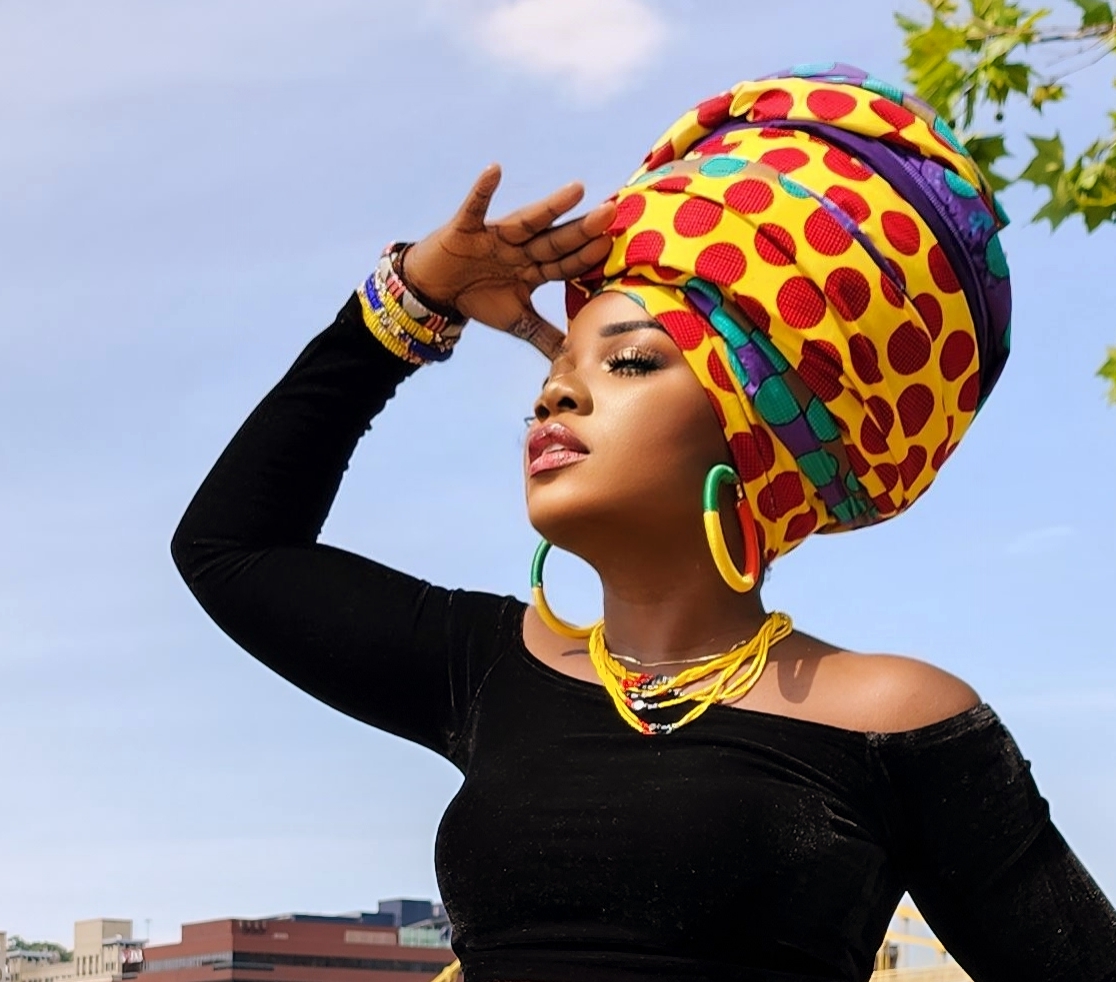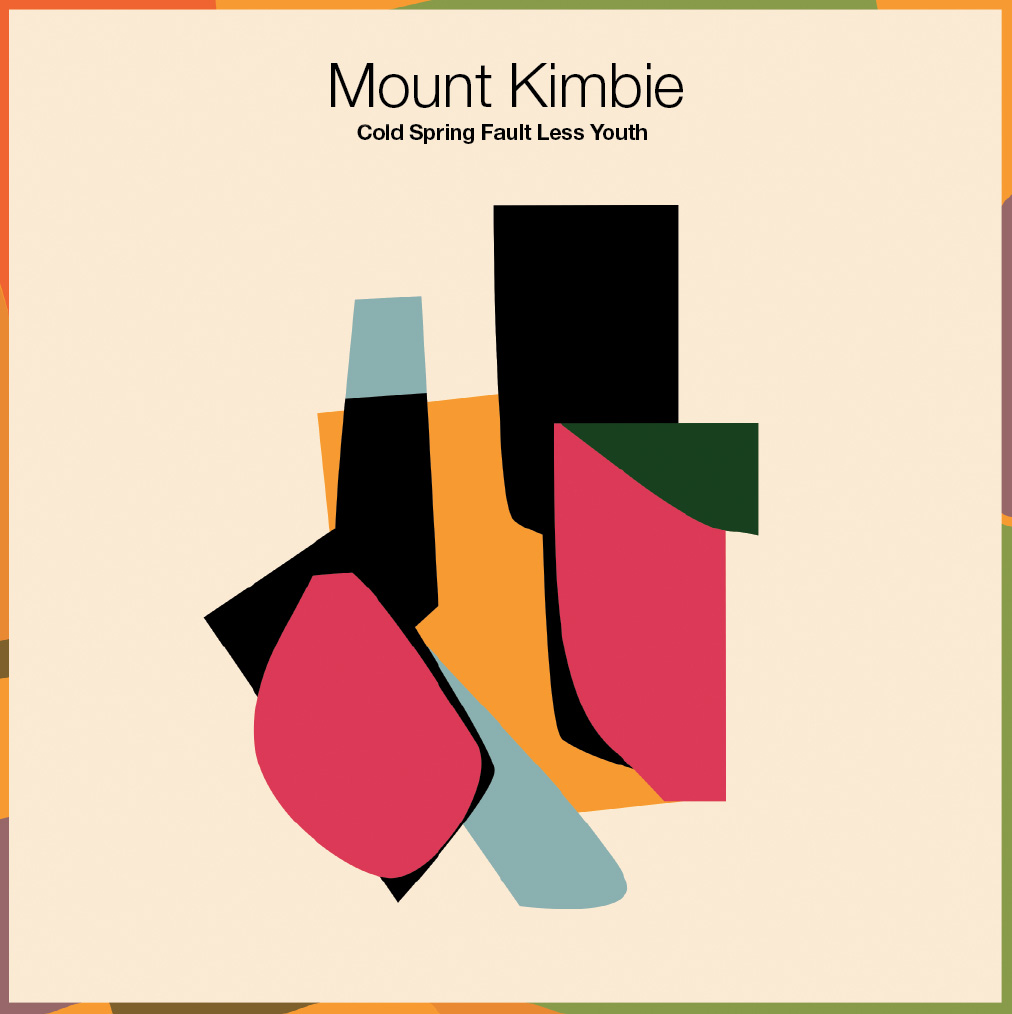Les Amazones d’Afrique are no strangers to facing down convention.
Fusing hypnotic West African rhythms with socially charged lyrics, the all-female collective has become a formidable force in the global music scene. Their blend of activism and artistry has always been inseparable, and with their third album, Musow Danse, they’ve created their most urgent statement yet.
Set to take the stage at Mandela Hall on 28th October, their performance stands as one of the most anticipated events in this year’s Belfast International Arts Festival, promising a celebration of resilience, power and liberation.
Ahead of the performance, Brian Coney chats with Jemiriye Adeniji, a key member of Les Amazones d’Afrique, to discuss the collective’s ongoing fight for empowerment, their evolving sound and how they plan to captivate Belfast audiences at this landmark festival event.
Go here to buy tickets to Les Amazones d’Afrique at Mandela Hall, Belfast on 28th October
Les Amazones d’Afrique has always been at the forefront of blending activism with music. With Musow Danse, how do you feel your message around gender equality and social justice has evolved from your earlier albums, République Amazone and Amazones Power?
Musow Danse is very much a continuation of the themes we’ve explored in our previous albums, and while the core message remains the same, we’ve witnessed some remarkable progress. For example, the law passed against female genital mutilation in The Gambia is a major step forward. We’re also seeing more women rise to positions of power, actively shaping policies and decisions. Our mission is to continue reshaping the narrative around women’s roles globally, and part of that involves building up the next generation of fearless female leaders who are ready to break boundaries. Importantly, we also need men to be part of this movement. It’s a collective effort to create lasting change.
You’ve performed on some of the world’s most iconic stages, including Glastonbury and Later… with Jools Holland. How do you find yourself adapting your energy and sound for different audiences, and how do you approach playing in new cities like Belfast?
Every stage and every city holds a special place in my heart because, for me, it’s all about the people. We love seeing the smiles on their faces and knowing we’ve left them in a better place than when we arrived. We treat every performance as if it’s our last—giving our all on stage and always feeling grateful for the love we receive in return. Music is food for the soul, and we’re very intentional about what we serve. We want you to leave your stress at the door and let the music take you away. Our goal is to heal souls with sweet harmonies and love from the heart. We can’t wait to meet the wonderful people of Belfast and share that experience with them.”
Belfast is a city with its own history of political and social struggles. How do you think your music, which champions equality and empowerment, resonates in a place like this?
Just like the historic city of Belfast, with its social struggles and triumphs, we feel a deep connection to the spirit of this place. Our own fight for women’s empowerment, gender equality, ending early child marriage, and stopping female genital mutilation across Africa is very much in line with the values that Belfast stands for. We’re also advocating for girl child education and the end of domestic violence against women. We look forward to the day when all women are truly free. That’s why performing in Belfast is so special to us—we understand what it means to fight for what is right.
The collective has grown to include voices from across West Africa, but with Musow Danse embracing even more diverse production elements like electro-pop and hip-hop. What was it like working with Jacknife Lee on this record, and how did his approach shape the album’s sound?
Oh my! I wouldn’t be exaggerating if I said working with Jacknife Lee has been one of the most incredible experiences. He has such a unique approach to composing and arranging—it’ll truly blow your mind. Honestly, at first, we were a bit confused by his production style because it was so different from what we were used to. But by the end, we all found ourselves falling in love with the music over and over again. He has a way of making the impossible seem effortless. I’m personally humbled to have worked with him—his creativity is beyond anything I’ve experienced. Sometimes, I wonder what was going through his mind while crafting the music. The way he seamlessly blends African rhythms with his own modern sound is simply unbelievable.
Your songs feature powerful harmonies and an extraordinary mix of African rhythms with contemporary pop. Since you formed, how have you balanced traditional influences with modern sounds in a way that remains true to the collective’s message?
Personally, I believe in art without borders. Freedom is the greatest gift you can give yourself when creating. I just let myself go and allow the music to flow naturally, because African rhythms and harmonies are already in my blood. Blending those rich African sounds with contemporary genres—whether it’s pop, rock, or house—comes naturally to me. It’s all about letting the music evolve organically, without limitations.
The track ‘Flaws,’ which you perform with Mamani Keïta and Fafa Ruffino, is particularly lively and danceable. Can you tell us more about the themes of this song and how it reflects the overall feel/essence of Musow Danse?
The title of the song, ‘Flaws,’ speaks for itself. We all have imperfections, and that’s what makes us human. This song was born from the desire to remind everyone that while none of us are perfect, we are “perfectly imperfect” just as we are. It’s a message of self-acceptance—embracing the flaws we can’t change and understanding that these imperfections are part of our journey, part of our triumphs. At its core, Flaws encourages loving yourself and others, flaws and all. And of course, we want you to move your body and dance as we celebrate the beauty in our imperfections!
In Musow Danse, you sing in several languages, representing a wide range of African cultures. How important is it for you to maintain these linguistic ties, and how do you feel it enriches your music’s message?
As members of Les Amazones d’Afrique, we use our platform to address issues that affect women, particularly in Africa, where many do not have the same opportunities as women in the Western world. It’s crucial for us to convey our messages in different languages, as it reflects the authenticity of who we are and the diversity of our audience. We speak for all women, no matter the language. We share your struggles because we’ve lived them ourselves in one way or another. Personally, I’ve experienced domestic violence in an abusive relationship, and although it still hurts to think about, performing on stage helps me heal. I often reflect on how I should have walked away sooner, but at the time, I couldn’t. So, I understand deeply what that experience feels like.
The Belfast International Arts Festival is known for embracing diversity in the arts. What do you hope audiences here take away from your performance, both musically and in terms of the social causes you champion?
Musically, we want the audience to get ready to dance because we’ll be taking them to Africa via our music, and as you know, as Africans there’s no debating it, you just have to dance, so get your dancing shoes on.In terms of social justice, we want everyone to remember that love is all that matters. If we love and respect one another enough we won’t have keep fighting for gender equality and empowerment for women. This should just be basic human rights. Remember women are strong, powerful, beautiful, and we deserve everything we’re asking for. As a matter of fact it’s long overdue.
Lastly, your live shows are renowned for their electrifying energy and deep emotional resonance. How do you plan to bring that signature intensity to the stage in Belfast, and what do you hope the audience will take away from experiencing Les Amazones d’Afrique firsthand – many for the very first time – at the festival?
Our hope is that when the audience leaves, they walk away with a sense of happiness, feeling energized and uplifted. We want them to experience a renewal of spirit, filled with love and positive energy. Through our music and performance, we aim to inspire a deep connection—to remind people of the joy that life can bring, even in challenging times. If we can help people feel lighter, more hopeful, and recharged, then we’ve achieved what we set out to do. We want everyone to leave with hearts full of love and minds filled with positivity.
Go here to buy tickets to Les Amazones d’Afrique at Mandela Hall, Belfast on 28th October






